Prefrontal cortex
Recent articles
Alison Preston explains how our brains form mental frameworks for interpreting the world
Preston discusses her research examining differences in how children, teenagers and adults integrate new information into their memories.
Alison Preston explains how our brains form mental frameworks for interpreting the world
Preston discusses her research examining differences in how children, teenagers and adults integrate new information into their memories.
Newfound gene network controls long-range connections between emotional, cognitive brain areas
The finding could help unravel gene regulatory networks and explain how genetic and environmental factors interact in neurodevelopmental conditions.
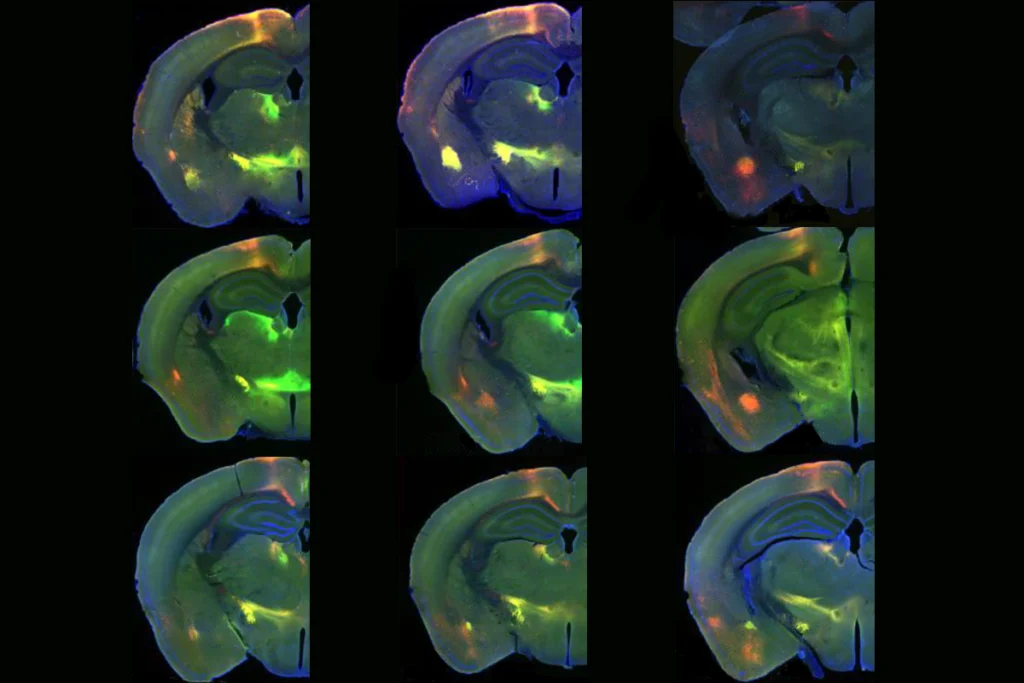
Newfound gene network controls long-range connections between emotional, cognitive brain areas
The finding could help unravel gene regulatory networks and explain how genetic and environmental factors interact in neurodevelopmental conditions.
Neurons’ spikes may convey their whereabouts
The time lag between spurts of activity holds anatomical information, according to a preprint.
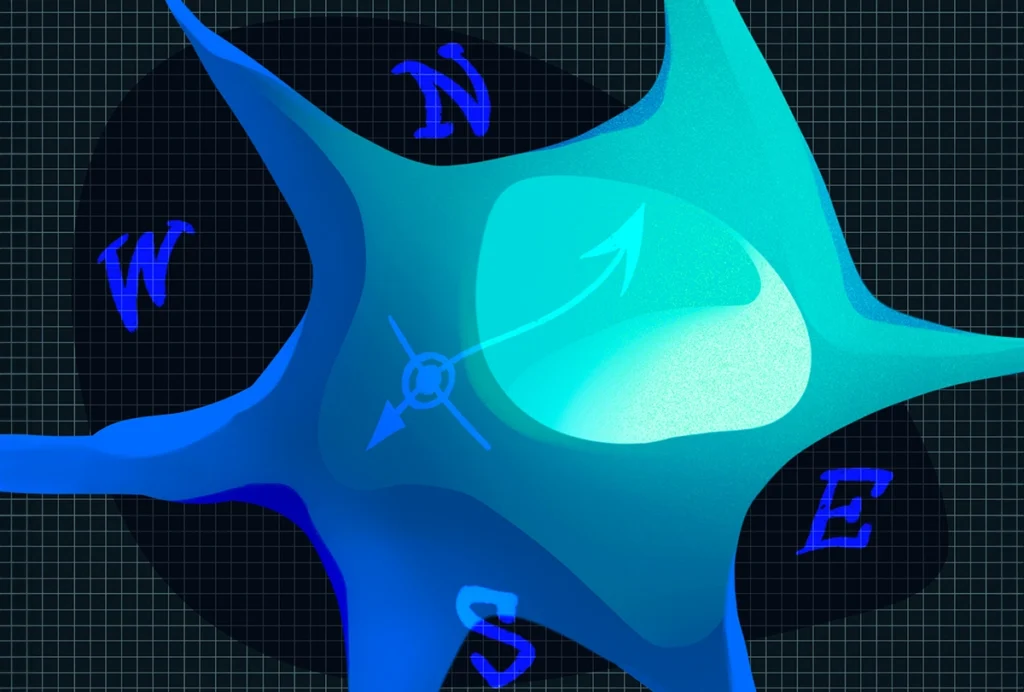
Neurons’ spikes may convey their whereabouts
The time lag between spurts of activity holds anatomical information, according to a preprint.
Synaptic anomalies in autistic people support imbalance hypothesis
Increased excitatory and decreased inhibitory synapses in the prefrontal cortex of autistic people suggest broader impacts on brain function and connectivity.
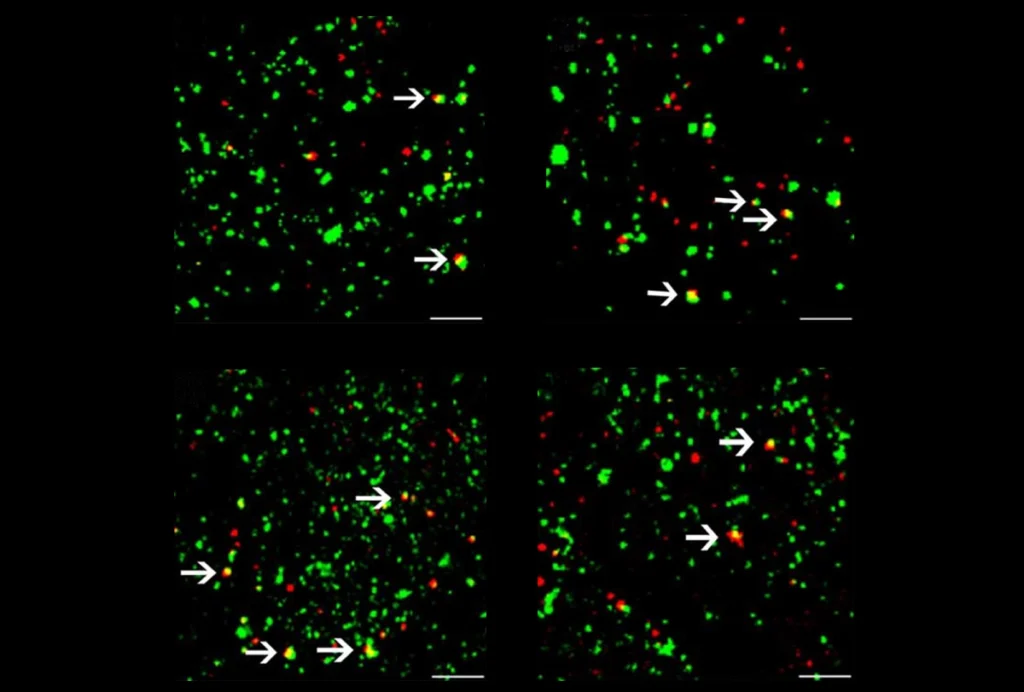
Synaptic anomalies in autistic people support imbalance hypothesis
Increased excitatory and decreased inhibitory synapses in the prefrontal cortex of autistic people suggest broader impacts on brain function and connectivity.
Preprint questions validity of postmortem brain studies
But the alternatives, including living-brain biopsies, raise logistical and ethical questions, experts say.
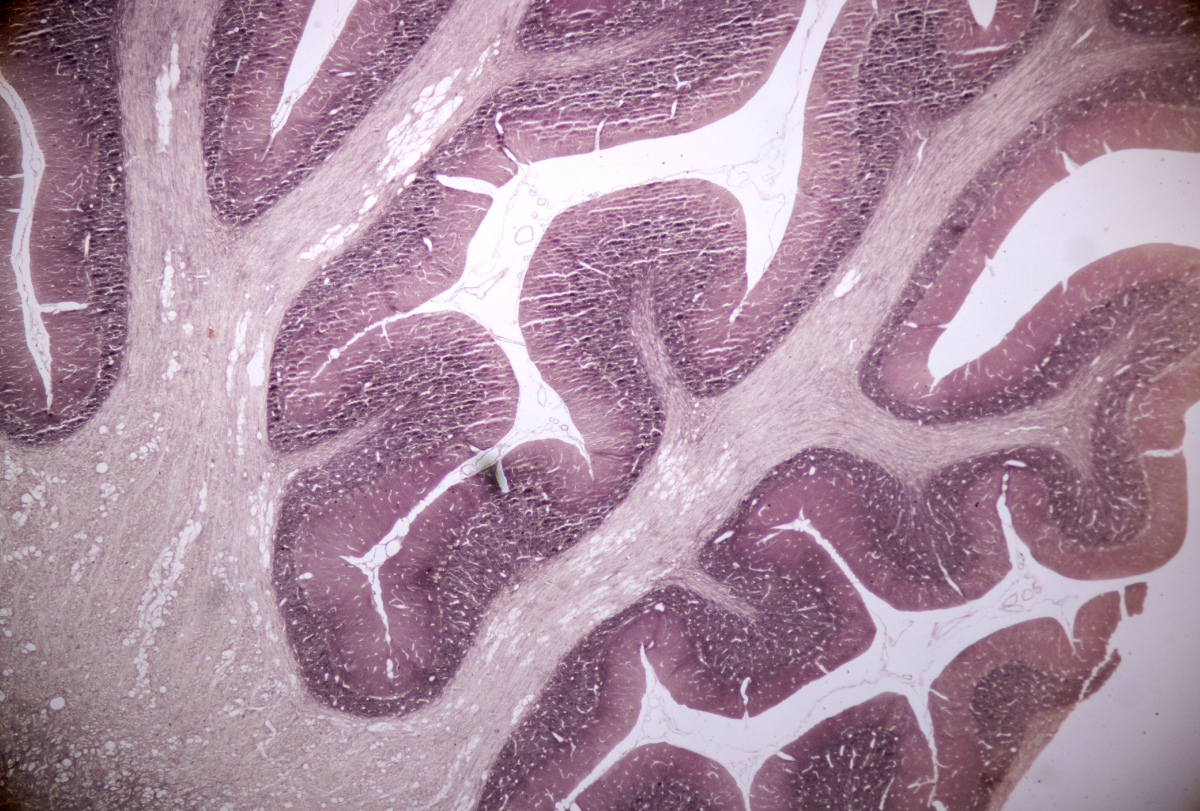
Preprint questions validity of postmortem brain studies
But the alternatives, including living-brain biopsies, raise logistical and ethical questions, experts say.
People’s perceptions of ‘social’ animations don’t always square with researchers’ labels
The finding calls into question differences between autistic and non-autistic people on a decades-old theory-of-mind test involving interacting geometric shapes.
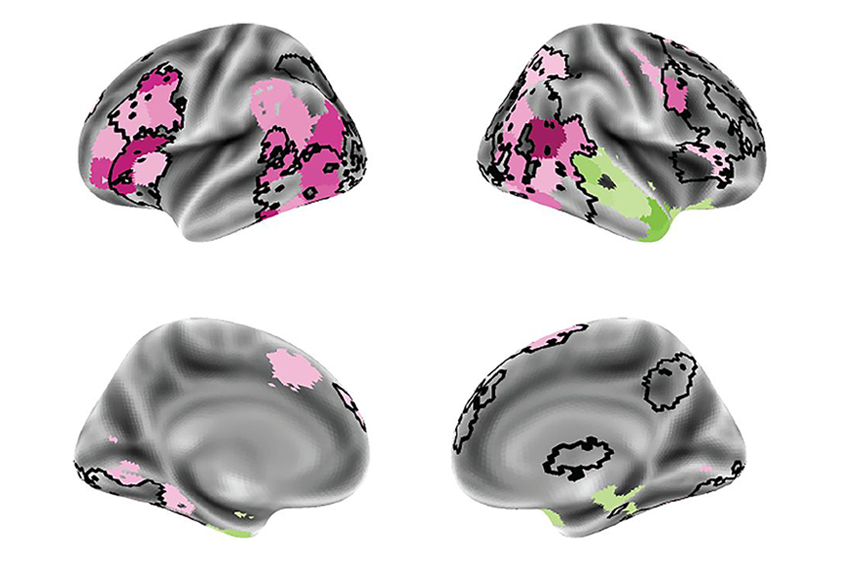
People’s perceptions of ‘social’ animations don’t always square with researchers’ labels
The finding calls into question differences between autistic and non-autistic people on a decades-old theory-of-mind test involving interacting geometric shapes.
Neurons struggle to spike without fragile X gene
FMR1 loss impairs sodium channels, hindering mouse neurons from generating the electrical signals needed to transmit information.
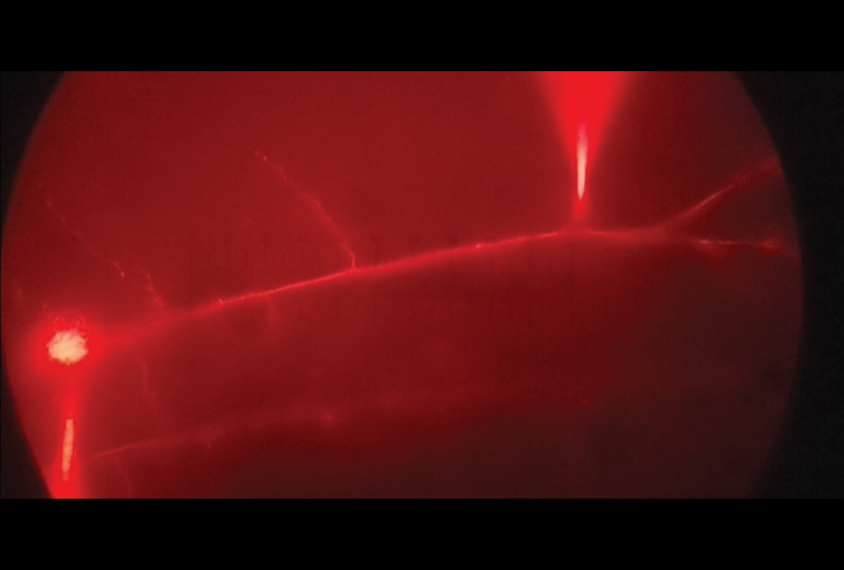
Neurons struggle to spike without fragile X gene
FMR1 loss impairs sodium channels, hindering mouse neurons from generating the electrical signals needed to transmit information.
Multi-omics study captures CNTNAP2’s far-ranging effects
The in-depth approach shows mutations in the autism-linked gene disrupt neuronal growth and communication, as well as mitochondrial gene expression.
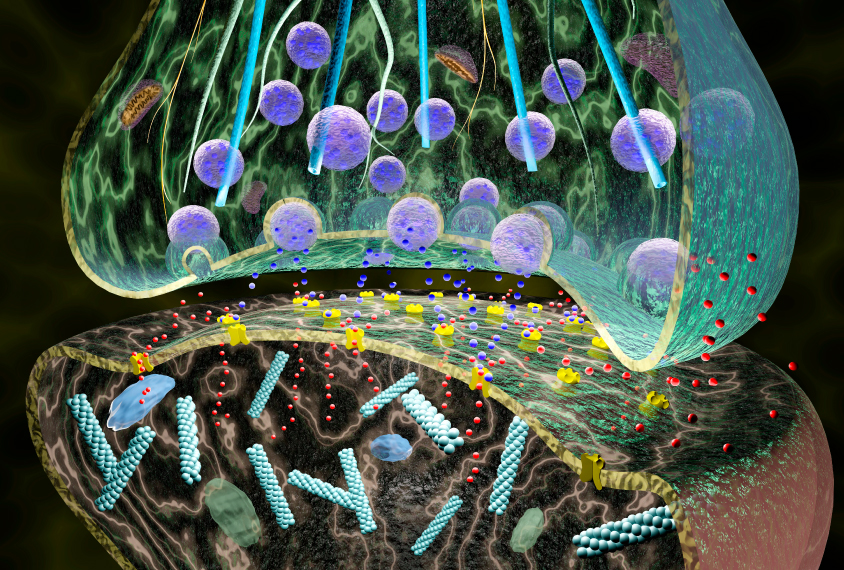
Multi-omics study captures CNTNAP2’s far-ranging effects
The in-depth approach shows mutations in the autism-linked gene disrupt neuronal growth and communication, as well as mitochondrial gene expression.
Autism-linked mutation disrupts brain circuit to change social behavior
Therapies that target the circuit could boost social activity, new findings suggest.
Autism-linked mutation disrupts brain circuit to change social behavior
Therapies that target the circuit could boost social activity, new findings suggest.
Histone-modifying drug improves autism-like behaviors in mice
The experimental compound, called GSK-LSD1, enhances social preferences and reduces repetitive grooming in mice, according to a new study.
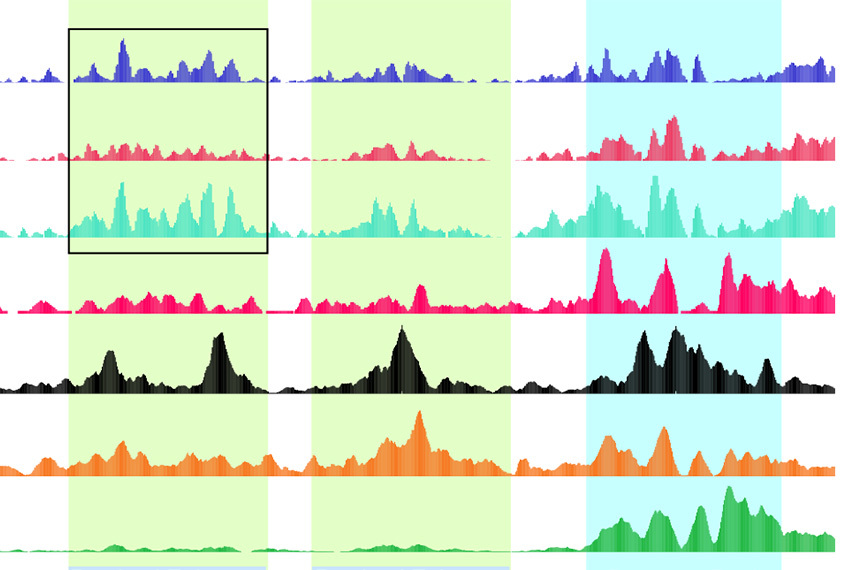
Histone-modifying drug improves autism-like behaviors in mice
The experimental compound, called GSK-LSD1, enhances social preferences and reduces repetitive grooming in mice, according to a new study.
Explore more from The Transmitter
Dendrites help neuroscientists see the forest for the trees
Dendritic arbors provide just the right scale to study how individual neurons reciprocally interact with their broader circuitry—and are our best bet to bridge cellular and systems neuroscience.

Dendrites help neuroscientists see the forest for the trees
Dendritic arbors provide just the right scale to study how individual neurons reciprocally interact with their broader circuitry—and are our best bet to bridge cellular and systems neuroscience.
Two primate centers drop ‘primate’ from their name
The Washington and Tulane National Biomedical Research Centers—formerly called National Primate Research Centers—say they made the change to better reflect the breadth of research performed at the centers.

Two primate centers drop ‘primate’ from their name
The Washington and Tulane National Biomedical Research Centers—formerly called National Primate Research Centers—say they made the change to better reflect the breadth of research performed at the centers.
Post-infection immune conflict alters fetal development in some male mice
The immune-conflict between dam and fetus could help explain sex differences in neurodevelopmental conditions.

Post-infection immune conflict alters fetal development in some male mice
The immune-conflict between dam and fetus could help explain sex differences in neurodevelopmental conditions.